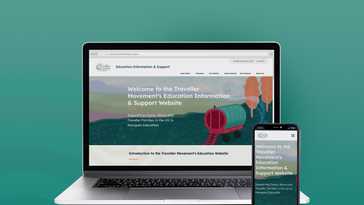
Learn More: Success at School
Once your child has started school, it’s important to monitor how they are progressing. Are they putting in the effort? Are they behaving well? Will they leave school with the qualifications and experiences needed to succeed in further education or employment? Below, we outline what their school experience should involve, along with tips to help ensure their continued success.
Sub-Sections
What sub-sections are available on this page?
-
-
- Stages of Education
- Types of Schools
- Primary & Secondary Assessment Levels
- Ensuring Success
-
Stages of Education (Including Key Stages)
Learn more
Early Years (Nursery)
- Children can typically start nursery school between the ages of 2 and 3 years.
- Nursery offers a great environment for children to develop social, emotional, and physical skills.
- Nursery education is not free for all, but many families may be entitled to government-funded hours depending on their circumstances.
Primary School
- Children attend primary school between the ages of 4 and 11 years.
- Full-time education becomes mandatory in the UK from the age of 5.
- Most primary schools are free (state-funded), though private schools charge fees.
Secondary School
- Children between the ages of 11 and 16 must attend secondary school.
- Secondary education provides children with a broad curriculum, covering essential knowledge and skills.
- Pupils typically study between 8 to 12 subjects, including core subjects like English, Maths, and Science.
Alternative Provision (AP)
- AP can include on-site inclusion units, specialist AP schools, and Pupil Referral Units (PRUs).
- Children may be placed in AP if they are struggling to cope in mainstream primary or secondary education.
- AP schooling is tailored to the needs of the child and should be reviewed regularly to ensure it is in the child’s best interests.
College
- Students usually attend college after turning 16.
- Early college entry is available for some 14–16-year-olds if mainstream secondary education is not suitable.
- Students generally study one to five subjects at college, with a focus on preparing for work, apprenticeships, or further education.
University
- Students can typically apply for university at 18, but adults of any age are eligible to apply.
- At university, students usually specialise in one or two subjects.
- Upon completing their degree, students are known as ‘graduates’ and may choose to pursue further qualifications like a Master’s degree or PhD.
Types of Schools
Learn more
Maintained Schools
Sometimes referred to as ‘community schools’ or ‘local authority schools’, these schools are controlled by the local authority.
They are not influenced by businesses or religious groups and are required to follow the National Curriculum.
Academies
Sometimes referred to as ‘free schools’, these schools are run by not-for-profit academy trusts and are independent of the local authority.
Academies receive funding directly from the government and have greater autonomy in areas such as setting their own term dates and designing their curriculum.
Foundation Schools
Sometimes called ‘voluntary schools’ or ‘faith schools’, these schools are funded by the local authority but have more freedom in how they operate.
They typically have governing bodies that may include religious leaders such as Priests, Vicars, Imams, or Rabbis, who influence the direction of the school.
Grammar Schools
Grammar schools can operate under any of the school formats mentioned above, but they differ in that they select pupils based on academic ability, typically through entrance exams.
Other schools use different criteria such as location, previous schooling, special educational needs, or other non-performance-related factors when admitting pupils.
Private Schools
Also referred to as ‘independent schools’, private schools do not receive government or local authority funding.
Instead, families pay fees, either termly or annually, for the education provided.
Private schools are not required to follow the National Curriculum. Many offer scholarships that may cover part or all of the fees, but these opportunities are limited and highly competitive.
Primary & Secondary Assessment Levels
Assessment allows teachers to monitor your child’s progress and provides essential information that helps them support further development. It also enables schools to communicate progress to parents and assists older students in making informed choices about examination courses, qualifications, and career paths. Additionally, assessment facilitates the setting of future targets for students and measures school performance, allowing the government to monitor the overall effectiveness of the education system.
In England, children must follow the National Curriculum, designed to ensure a broad and balanced education divided into eight levels. The most able children are expected to achieve level 8 by the end of Key Stage 3. The National Curriculum includes the following subjects: art and design, citizenship, design technology, English, geography, history, ICT, mathematics, modern foreign languages, music, PE, science, religious education (RE), careers education, work-related learning, and personal, social, health and economic education (PSHE).
There are four key stages, with assessments conducted at the end of each stage, focusing primarily on core subjects. Children in England take Standard Attainment Tests (SATs) at ages 7, 11, and 14, and national examinations—often, but not exclusively, GCSEs—at age 16 (end of Key Stage 4).
Key Stage One (Year 1 – Year 2)
This key stage covers children aged 5 to 7. Schools will assess reading, writing (including spelling and handwriting), and maths. The average 7-year-old is generally expected to achieve level 2. At this stage, there are no pass or fail criteria; the tests aim to indicate whether a child is working at, above, or below the expected level.
Key Stage Two (Year 3 – Year 6)
This key stage encompasses children aged 7 to 11. Children are tested in English, maths, and science at age 11 in Year 6 before transitioning to secondary school. The average 11-year-old is typically expected to achieve level 4.
Key Stage Three (Year 7 – Year 9)
These assessments occur in Year 9 at secondary school, when a child is usually 14 years old. Children will be tested in English, maths, and science. Teachers will also assess pupils in subjects such as art, citizenship, design technology, geography, history, ICT, modern foreign languages (MFL), music, and PE. The target level at Key Stage 3 is level 5, with most children achieving level 8.
Key Stage Four / GCSE (Year 10 – Year 11)
Most children undertake a two-year GCSE course, although some schools allow pupils to sit certain GCSEs at the end of Year 10. Students are typically encouraged to study a broad range of subjects, including:
- English (language and literature)
- Maths
- Science (biology, chemistry, physics—either as a combination of one, two, or all three subjects, in single or double awards)
- A modern foreign language (no longer compulsory)
- A design technology subject (e.g., graphics, art)
- Humanities (history, geography, RE)
- The arts (visual and performing)
Increasingly, schools offer business and vocationally oriented subjects such as business studies, economics, media studies, and ICT. Social sciences like psychology and sociology are also popular in some schools.
Students usually make their GCSE subject choices in Year 9 after discussions with the school, their parents, and teachers. At this stage, the level of study will be discussed, with most subjects offering foundation and higher levels.
IGCSE
The International GCSE (IGCSE) is becoming an increasingly popular option in independent schools and for parents who choose to home educate their children. The IGCSE is more in-depth than standard GCSEs, providing more able pupils the opportunity for further development. Exams are graded in the same manner as GCSEs and offer both foundation and higher awards.
Scotland
Scotland has its own curriculum, examinations, and examining bodies. For more information, please visit the Good Schools Guide.
Ensuring Success
Generally, the more parents and families engage with their child or young person’s education, the better the educational outcomes for that child or young person will be. Schools offer numerous ways and opportunities to support parents in taking an interest and reflecting on their child’s progress.
School Reports
School reports are an excellent way to understand how a child or young person is performing in school. These reports often identify areas where the student may need to expand their skills or focus to achieve their targets. While reports provide valuable insights, attending parents’ evenings, engaging in other forms of communication, and conducting regular check-ins are also important for obtaining up-to-date information and a deeper understanding of your child’s progress.
We recognise that some Romani (Gypsy), Roma, and Irish Traveller parents may face language or literacy barriers that make understanding a school report challenging. In these cases, we encourage families to speak to the school about these barriers so that appropriate support can be provided, such as a staff member explaining the report or arranging for a translated copy. Schools have a duty to ensure accessibility for all pupils and parents, especially when access is restricted due to disability or ethnicity.
Parents’ Evenings
Parents’ evenings are held regularly, allowing parents to receive feedback from teachers about their child’s progress. While attendance at these events is not mandatory, The Traveller Movement strongly recommends that parents participate to better understand the challenges their child may be facing. By working collaboratively with the school, parents can assist their child in overcoming any barriers they encounter. These evenings also present a valuable opportunity for parents to celebrate their child’s successes.
We understand that Romani (Gypsy), Roma, and Irish Traveller parents and families may often feel overwhelmed or unwelcome when visiting a school. This feeling could stem from negative past experiences or from having limited education themselves, which can make them feel out of place.
We encourage all Romani (Gypsy), Roma, and Irish Traveller parents and families to overcome these feelings and take pride in their and their children’s engagement in education. Schools have a duty to ensure that all parents and children are treated equally and fairly, which includes fostering an environment that is welcoming and free from judgement, prejudice, and discrimination.
Emails and Communication
Emails, apps, and other communication platforms used by schools are excellent ways to stay in touch with teachers and track your child or young person’s progress. While school reports and parents’ evenings provide a broad overview, regular communication serves as an effective tool for addressing immediate concerns and receiving up-to-date feedback.
Emails are also valuable for conveying your child’s needs to their teachers. For instance, if your family has experienced a death, notifying the school can help them prepare and offer the necessary support for your child as they cope with their loss. Additionally, if your child is feeling unwell but is well enough to attend school, informing their teachers can enable them to provide appropriate assistance.
Homework
Assisting your child with homework can be challenging for various reasons. Many parents experience the frustration of not knowing the answers or the best way to help. Moreover, your child may be learning new techniques that differ from those you were taught. Combined with the struggle to motivate children to complete their homework, it can be easy to feel overwhelmed. However, completing homework is crucial not only for your child’s progress and understanding of the subjects they are studying but also for developing essential skills such as self-motivation and independent study, which are vital as they prepare for GCSE exams and further studies.
To support parents and families who may find it difficult to assist with homework—especially as children advance through the year groups—many schools offer homework clubs and other resources designed to encourage children to complete their assignments and provide assistance to parents who wish to help more effectively.


